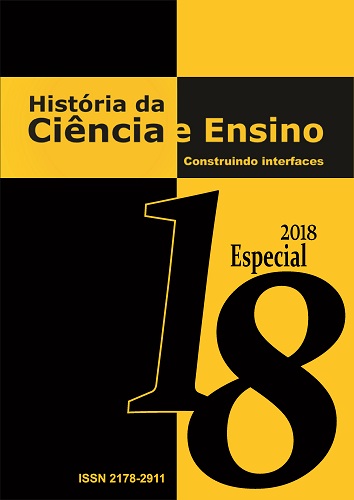A formação científica e profissional das mulheres no Brasil: A contribuição de Bertha Lutz
DOI:
https://doi.org/10.23925/2178-2911.2018v18i1p22-46Resumo
Resumo
Este trabalho visa contribuir para os estudos sobre o papel da mulher na ciência brasileira com base nas análises realizadas sobre a presença de mulheres cientistas nas instituições de pesquisa em diferentes áreas de conhecimento. Para isso, baseamos nosso estudo na vida profissional e científica da zoóloga e ativista feminista Bertha Lutz (1894-1976), defensora incansável dos direitos das mulheres no Brasil, inclusive do direito à Educação e à formação científica. Em 1919, Bertha Lutz prestou concurso público para o Museu Nacional, onde trabalhou por quarenta e seis anos e construiu uma reputação internacional como cientista. Fundou a associação feminista intitulada Liga Pela Emancipação Intelectual da Mulher e dedicou-se intensamente às ciências e ao movimento feminista. Procuramos promover um paralelo entre as reflexões teóricas sobre gênero e ciência, feminismo na ciência e as trajetórias de mulheres nas ciências, no cenário da educacional brasileiro até o fim da década de 1930 e, consequentemente, sobre o papel da mulher nos espaços científicos e acadêmicos a partir das ações de Bertha Lutz no início do século XX e a formação científica e profissional das cientistas brasileiras atualmente. Relacionamos seu papel como pioneira e seu legado a partir da posição tomada por Bertha Lutz na imprensa como local de luta e de divulgação. Com isso, foi possível relacionar as ações desta cientista com o que temos e tratamos com naturalidade hoje, a formação científica e profissional atual das mulheres e as ações das cientistas pioneiras no cenário científico e político do Brasil no início do século XX.
Palavras-chave: Mulheres na Ciência; Gênero e Ciência; Bertha Lutz.
Abstract
This work aims to contribute to the studies on the role of women in Brazilian science based on the analyzes carried out on the presence of female scientists in research institutions in different areas of knowledge. For that, we base our study on the professional and scientific life of the zoologist and feminist activist Bertha Lutz (1894-1976), a tireless advocate for women's rights in Brazil, including the right to education and scientific training. In 1919, Bertha Lutz publicly bid for the National Museum, where he worked for forty-six years and built an international reputation as a scientist. He founded the feminist association titled the League for the Intellectual Emancipation of Women and devoted himself intensely to the sciences and the feminist movement. We seek to promote a parallel between the theoretical reflections on gender and science, feminism in science and the trajectories of women in the sciences, on the Brazilian educational scenario until the end of the 1930s and, consequently, on the role of women in scientific and academic spaces from the actions of Bertha Lutz in the early twentieth century and the scientific and professional training of Brazilian scientists today. We relate his role as a pioneer and his legacy from the position taken by Bertha Lutz in the press as a place of struggle and outreach. With this, it was possible to relate the actions of this scientist with what we have and we deal with naturalness today, the current scientific and professional training of women and the actions of pioneering scientists in the scientific and political scenario of Brazil in the early twentieth century.
Keywords: Women in Science; Gender and Science; Bertha Lutz.


